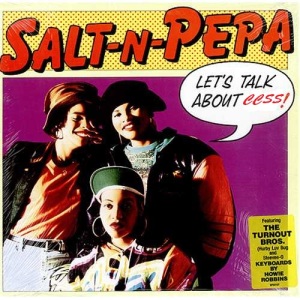Let’s Talk About CCSS (Common Core State Standards) and the CCSS Wars

Had to try an make this topic at least “look” a little more interesting. . .
If you are a teacher, you know what CCSS is, but for those of you who don’t let me give you a refresher from what I can recall off the top of my head. Forgive me if this is incomplete and feel free to fill in the blanks or correct me.
Some years ago
in a galaxy not so very far away
the NGA (National Governor’s Association)
with some funding from Bill Gates
and prodding by the US Department of Education
embarked on a journey
to develop a single set of “standards”
Standards that would be universal
across the 50 states
and miscellaneous territories.
This was intended to be grassroots,
educator lead process.
While the AFT (American Federation of Teachers)
lead by Randi Weingarten
has claimed to have been instrumental
in crafting these standards,
many AFT folks seem to disagree.
During the drafting process,
Corporate empires funded and usurped
much of the drafting of these standards
to institute a fierce regime
of high stakes testing
and to sell many new text books and tests
to unsuspecting districts
innocently adopting these standards
in the belief that they were doing so
for the good of “the children.”
Now that these standards have been created
and seem to be gaining Empirewide acceptance
Many groups across the political spectrum
would like to see the implementation of CCSS delayed,
in particular the attachment of high stakes testing and outcomes.
There seems to be some consensus
(although certainly not universal)
that this process was co-opted by Corporate interests,
that teachers nationwide are currently ill-prepared
to teach these standards,
and that introducing these standards midstream on students
may have discouraging or deleterious effects
(since they will not be phased in starting with lower grades
but introduced all at once,
regardless of whether students have been introduced
to much of the material they are expected to know in the higher grades.
It also seems to be widely accepted and anticipated
that there will be much testing involved
in verifying students are acquiring the skills
the CCSS lords dictate they learn.
This is where our story begins. . .
The amount of testing may be subject to some debate, but the clear intent of developing a Common Core set of standards is for comparability of student achievement across the states. It’s probably pretty hard to compare something, without measuring anything, so I’d say it’s a fairly reasonable guess that there will be much testing involved here. If it is a significant amount it is pretty clear it will cut into instructional time and possibly have a negative impact on student achievement. Testing companies are very excited about promoting these standards, because all this testing will mean big bucks for them. Some of the problems I’ve seen mentioned about the tests developed to date (in a number of articles) are: incorrect answers, multiple correct answers for non-multiple choice tests, and corporate product placement in exam questions such as: (if Tommy drinks an 8 oz. Coca Cola, and then eats 3 Doritos flavored Tacos from Taco Bell before cleaning his hands with some Johnson & Johnson wipes, how much will Pierson earn on the backend for including these products in their testing materials?)
Could the testing be limited to something reasonable and perhaps replace existing tests? Perhaps, but based on all the companies getting into the test prep and evaluation business and looking to market massive data intensive student and teacher evaluation tools like inBloom, Ed-Fi, Amplify, Wireless Generation, and others, the expectation of many vendors and investors is that this will be a enormous money making market going forward.
Non-public schools have adopted, or are planning to adopt CCSS too. Some non-pubs are resisting, but that may be a losing battle if these standards truly become widespread, and “standard” as any tests that might be used to compare their children to public children will eventually be geared towards verifying CCSS mastery, and without being taught this material at the right times. . . well they probably won’t compare very favorably.
For the most part I have only heard negative comments and discourse about CCSS, but admittedly this may be related to the company I keep. ![]() Some of the criticisms I’ve seen are that the math curriculum is light on the basic memorization of multiplication tables and practice, and heavy on the use of calculators and word problems. I’ve heard the math is very confusing and complex to children who are unprepared for learning this way, and that the math, particularly at the higher grade levels is typically less rigorous than most current math standards. I’ve heard and read that the English curriculum is light on traditional literature, like your Beowulf, Hemingway, and Shakespeare and heavy on the non-fiction technical guides and historical non-fiction, particularly in the higher grades. In Louisiana, many teachers have reported they are currently ill-prepared for CCSS, and that they and their students will be evaluated based on CCSS tests and teacher evaluations. From what I’ve gathered preparation for teachers varies widely by school and school district and may be dependent on local resources and independent research done by teachers.
Some of the criticisms I’ve seen are that the math curriculum is light on the basic memorization of multiplication tables and practice, and heavy on the use of calculators and word problems. I’ve heard the math is very confusing and complex to children who are unprepared for learning this way, and that the math, particularly at the higher grade levels is typically less rigorous than most current math standards. I’ve heard and read that the English curriculum is light on traditional literature, like your Beowulf, Hemingway, and Shakespeare and heavy on the non-fiction technical guides and historical non-fiction, particularly in the higher grades. In Louisiana, many teachers have reported they are currently ill-prepared for CCSS, and that they and their students will be evaluated based on CCSS tests and teacher evaluations. From what I’ve gathered preparation for teachers varies widely by school and school district and may be dependent on local resources and independent research done by teachers.
Here are some stories that have been sent to me:
Teacher of Calculus who helped to develop the math curriculum for the State of Louisiana has seen the Common Core math at the high school level and commented that they did not understand some of the changes made to the bullets. Teacher will never teach the common core math and has decided to retire the year that it will be implemented in their grade level.
Teacher who is the head of the math department at their non-public Louisiana high school went to a common core math workshop two weeks ago. Teacher found it to be not so different than the curriculum used at their school, but definitely inferior.
New teacher in Louisiana who just completed a masters education – taught first grade(Elementary) and quit after their first year of teaching. They said the math consisted of questions and that there was no way that the kids were going to learn math this way – just talking about it.
Parent of student taught (common core math pilot in 4th and 5th grade in non-public school in Louisiana.) It was presented all year long in the form of complicated word problems requiring many different skills. The only problem was the kids were never taught the skills necessary to work the word problems. Lattice multiplication and partial quotient methods were taught in lieu of traditional multiplication and division methods. There is a video of M.J. McDermott illustrating these methods which was exact method student had . One of the word problems they remember that child struggled with in 4th grade was ”If you borrowed $250,000,000 from the bank at 4 5/8 % interest, what would be your payment the first month? What would be your payment the 12th month? The next leg of the problem included making a minimum payment of $20,000 per month making it more complicated – I can’t remember exactly how it was worded. Why would they even want kids to think that it is o.k. to borrow large sums of money? It was just bad all the way around.
Similar story this past weekend in Florida – one mom of a 3rd grader said that she could not help her son with his math – in particular their problem was with partial quotients. They believe ”elite” private schools not adopting common core.
Now I’ve heard some people claim they actually like CCSS and have implemented it successfully. The idea behind CCSS was developing a single set of rigorous standards that would be universally applied across the United States to make test scores and progress more comparable, to make textbooks more standardized, to retool the curriculum for something more 21st century appropriate, and to properly prepare students for college and career readiness.
How is this working out for you?
When providing an example or story please provide the following information:
- Setting (Non-public/public)
- State
- how long you’ve employed or implemented stats
- grade level taught
- subject
You may choose to provide more information than this such as your name, school name, etc, but be aware that this is a public forum and there should b e no expectation of privacy. If you have a superintendent and/or principal particularly gung-ho on CCSS, and you post something negative, there’s a good chance that will get back to them.
Feel free to post both positive or negative information, but please maintain a civil discourse. I know this may seem like an absurd request coming from me, but every once in a while I like to moderate a civil discussion so people can feel free to express their feelings to investigate and understand a topic more thoroughly. I am not a teacher, nor are many of my readers, but many of us know teachers, parents or students so this should all be of some concern to some of us on some level. I’d like to understand, and for my readers to understand, if there is a problem or problems, or if despite the dubious way this curriculum was conceived, it might turn out to be a net plus if properly resourced, applied and addressed.
May the Fourth be with you.
Happy Independence Day!
This blog post has been shared by permission from the author.
Readers wishing to comment on the content are encouraged to do so via the link to the original post.
Find the original post here:
The views expressed by the blogger are not necessarily those of NEPC.


